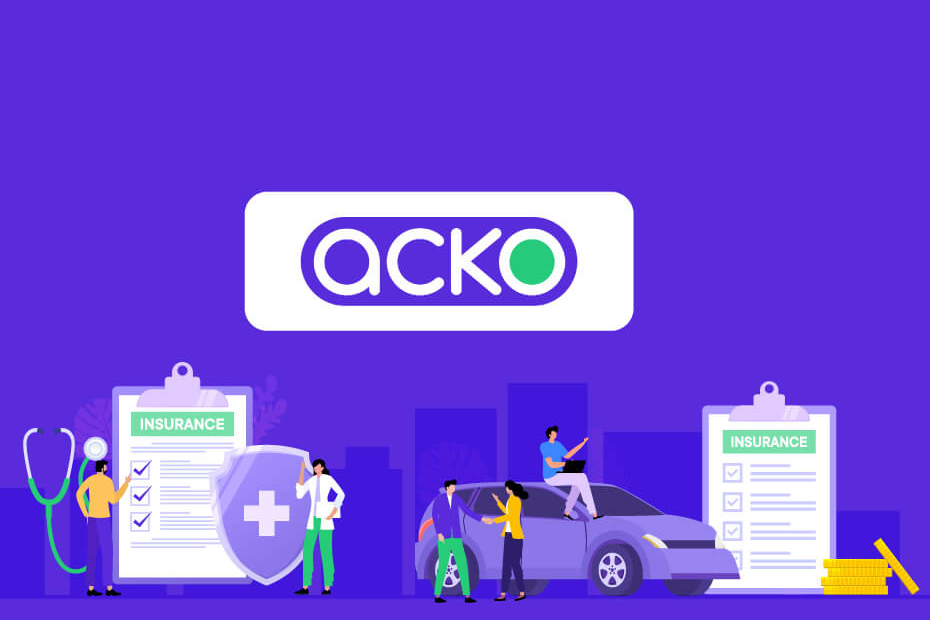Acko is a pioneering digital insurer in India, known for its direct-to-consumer model that largely eliminates intermediaries, hence offering lower premiums and more streamlined service. However, for growth and outreach, Acko does maintain agent or franchise partnerships, where trusted advisors or franchises market Acko products and earn commissions based on premiums sold. So, in this article, let’s know about the Acko Life Insurance Agent Commission Chart 2026.
Acko Life Insurance Agent Commission Chart 2026:
Table of Contents
According to multiple independent business directories detailing the Acko Life Insurance Agent Commission Chart 2026:
- Life Insurance Commission: 2.5% to 6% of the premium
- Health Insurance Commission: 5% to 10% of the premium
- Motor Insurance Commission: 5% to 7% of the premium
- Travel Insurance Commission: 10% to 15% of the premium
- ULIP Commission: 2% to 4% of the premium
Acko franchises require an initial investment of roughly ₹10,000–₹15,000 for training/registration, plus an optional infrastructure cost (₹25,000–₹50,000), with total ROI often achieved within 3–6 months and payouts disbursed approximately every 30 days.
These commission ranges, while from late 2024are likely still reflective of 2026 agent compensation, barring major structural changes or regulatory overhaul.
Factors Influencing Agent Commission:
There are a few factors that affect the commission rates. These are…
1. Digital-First Business Model:
Acko emphasizes direct digital distribution, minimizing agent use. This strategic choice influences lower commission ranges compared to traditional insurers, but offers greater scalability and operational efficiency.
2. Product Type:
Commission percentages vary by product category to align with business priorities:
- Low commission on life insurance (2.5%–6%) and ULIPs (2%–4%)
- Higher commission on travel (10%–15%) and health (5%–10%)
This tiered structure reflects both product profitability and agent motivation strategies.
3. Franchise Model vs. Direct Agency:
Acko’s franchises may be more formal setups with infrastructure investment, entitling agents to higher commissions and support. Meanwhile, smaller referral-based models may yield lower overhead and correspondingly adjusted payouts.
4. Training & Support:
Acko provides digital platforms, dashboards, basic marketing/training support, and lead management systems for its partners—sometimes limiting webinars or marketing aid—but ensuring smooth operations.
5. Regulatory Landscape:
Commissions must comply with IRDAI’s guidelines, which cap commission levels over product types and disallow excessive incentives. Digital insurers like Acko benefit from lower operational costs while still adhering to these norms.
6. Premium Volume & Persistency:
While not publicly quantified, volume-based incentives (e.g., higher commission slabs for large premium volumes or renewals) might exist, similar to common insurance practices—though Acko has not published explicit data in this regard.
Conclusion:
While Acko hasn’t formally released a “Acko Life Insurance Agent Commission Chart 2026,” available data offers a clear snapshot: agents can earn modest commissions—highest in travel, health, and motor insurance segments—within a digital-first, low-cost ecosystem. The commission structure is shaped by Acko’s strategic emphasis on cost efficiency, regulatory compliance, and tailored product incentives. For agents, understanding which products yield higher returns and aligning with Acko’s franchise model can significantly influence earnings and ROI.
FAQ:
Q. Does Acko publish an official 2026 commission chart like traditional insurers?
A. No. As of now, Acko hasn’t released a formal chart for 2026. Publicly available sources list commission ranges based on 2024 models (e.g., 2.5–6% for life insurance) which likely remain relevant.
Q. Why are Acko’s commission percentages relatively low?
A. Acko operates digitally with minimal intermediaries and infrastructure costs. Lower commissions reflect their cost-efficient model, passed on to customers via lower premiums.
Q. Which insurance product gives agents the highest commission?
A. Based on available data:
-
Travel Insurance: Up to 15%
-
Health Insurance: Up to 10%
-
Motor Insurance: Up to 7%
These offer the most attractive agent returns.
Q. Are renewal or persistency bonuses offered?
A. Claims on Acko’s partner models don’t explicitly mention renewal bonuses in public materials. Given Acko’s direct focus and digital model, such incentives—if they exist—are not publicly detailed.
Q. What’s the usual investment and support provided to Acko agents?
A. Agents typically invest ₹10,000–₹15,000 for registration/training; optional infrastructure may cost ₹25,000–₹50,000. Support includes dashboards, lead reporting, RM support, and basic marketing/tools. ROI may be achieved in 1–6 months.
